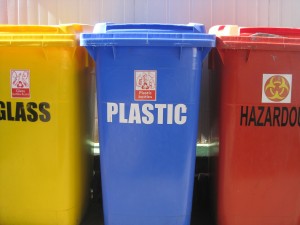One may ask exactly why the dire need for this, and of all times, why now? There are one thousand and one reasons to go green, the most primary is to save the planet, before we can preserve. Enlisted are five basic reasons why we need to have more green on the globe.
1. Water Is Not A Renewable Resource:
 For obvious reasons, clean water is the planet’s most precious resource, and with the drastically increasing effects of global climate change, for various regions across the world, our ability to have enough high-quality water on hand is likely to change. Taking care of water-ethics, the strain on the local drainage systems is reduced and subsequently changes the pollution quotient. By shifting away from bottled water, we can reduce global greenhouse gas emissions, the energy required to produce plastic, and the volume of waste transported to our landfills.
For obvious reasons, clean water is the planet’s most precious resource, and with the drastically increasing effects of global climate change, for various regions across the world, our ability to have enough high-quality water on hand is likely to change. Taking care of water-ethics, the strain on the local drainage systems is reduced and subsequently changes the pollution quotient. By shifting away from bottled water, we can reduce global greenhouse gas emissions, the energy required to produce plastic, and the volume of waste transported to our landfills.
2. Your Clothes Are Culprits Too!
Manufacturing and making clothes involves a large amount of materials, energy and labor. From the pesticide chemicals used to grow crops for textiles, the dyes and water used to color them, and conditions under which laborers work. By choosing eco-friendly clothing – like, purchasing organic over conventional cotton, one of the world’s most chemically dependent crops, you also choose a better product that is easier on the soil and groundwater. How you tend to your clothes – using cold water in the washing machine, eco-friendly detergents, and line-drying (at least partially) – can all reduce the impact of your wardrobe.
3. Nature Recycles Everything, Shouldn’t we?
 Making proper use of the blue recycling bin has become an iconic action. Reducing the amount of stuff we consume is the first step (and the first word in the mantra reduce-reuse-recycle), finding constructive uses for “waste” materials is the second. Why? Nothing is ever really thrown “away” — it all has to go somewhere. By recycling and reusing, we reduce the amount of waste that sits in landfills (where even biodegradable products often can’t break due to lack of oxygen and sunlight). Recycling materials also saves energy compared to using virgin materials to create new products. Some materials, like aluminum and glass, can even be recycled without being “down cycled,” or turned into a product of lesser quality
Making proper use of the blue recycling bin has become an iconic action. Reducing the amount of stuff we consume is the first step (and the first word in the mantra reduce-reuse-recycle), finding constructive uses for “waste” materials is the second. Why? Nothing is ever really thrown “away” — it all has to go somewhere. By recycling and reusing, we reduce the amount of waste that sits in landfills (where even biodegradable products often can’t break due to lack of oxygen and sunlight). Recycling materials also saves energy compared to using virgin materials to create new products. Some materials, like aluminum and glass, can even be recycled without being “down cycled,” or turned into a product of lesser quality
4. Making things uses up the world’s energy:
Every object you own — your furniture, your clothing, your beer cans, your stuff — comes from somewhere; every object has an environmental impact. To help legitimize the concept of your material life, choose goods made from green (or greener) materials, such as organic cotton, sustainably harvested wood or repurposed and recycled materials. The choices you make will help protect forests, habitat, clean water and biodiversity; ensure sustainable land-use practices; and reduce the amount of waste clogging up our landfills. Buying less stuff and second-hand stuff helps achieve this goal, too!
 P.S : If this article helped you become a better citizen of the world, leave us your feedback and subscribe to our blog for more! To get in touch with us, give us a call at 303-495-3705 or email us at [email protected]
P.S : If this article helped you become a better citizen of the world, leave us your feedback and subscribe to our blog for more! To get in touch with us, give us a call at 303-495-3705 or email us at [email protected]
Do you agree with this article? To learn more about how you could better this planet, Please subscribe to our blog for more green-globe articles. Also, do let us know with your valued feedback. Visit our Facebook page as well.
Source: Institute of Ecolonomics
Related Articles and resources:
- Top 6 Business Ideas for Green Entrepreneurs
- Why the world needs to be greener
- Recycling Tips
- The world is running out of water
- The greenhouse effect
- Saving energy tips
- Eco-friendly clothing
- 10 Ways to conserve water at home
- 5 Benefits Of Recycling Your Household Trash



